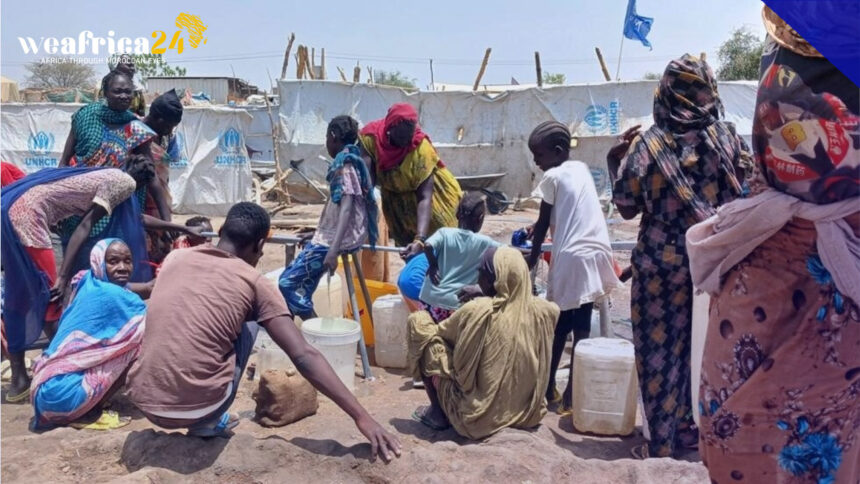In the aftermath of the conflict that erupted in Sudan on April 15th, 2023, between General Abdel Fattah al-Burhan’s army and General Hemedti’s Rapid Support Forces (RSF), nearly 8.5 million people have been displaced, with approximately 1.5 million seeking refuge abroad. The neighboring country of South Sudan has opened its doors to over 600,000 of these displaced individuals, among whom the refugee camp in Renk stands as a poignant intersection of numerous tragic destinies.
Within the confines of Renk’s transit center, Samuel, a 17-year-old refugee, diligently hammers away at an old tin can of food aid, fashioning makeshift stoves. “I’m making stoves,” explains the young man, one of many refugees in Renk, South Sudan. “You see, I flatten the can and work on it. I buy the cans in the market for 100 South Sudanese pounds and sell the stoves for 1,000.”
It was Samuel’s 16-year-old cousin, Alwasirla, who conceived the idea. For the past three months, he has been residing in Renk’s transit center with his family.
South Sudan has welcomed over 600,000 individuals fleeing from neighboring Sudan, which has been engulfed in war since April 15, 2023. The majority enter through the Joda border and pass through Renk. Approximately 80% are South Sudanese “returnees” who previously lived on the other side of the border. The remaining individuals are refugees who are supposed to relocate to a camp in Maban. However, many balk at the prospect due to the harsh living conditions and opt to remain in the transit center, mirroring the decision of Alwasirla’s family.
In Renk, refugees receive only a few days’ worth of food aid. Consequently, they have had to devise means to sustain themselves. “I had this idea before coming here,” explains Alwasirla. “No one taught me how to make these stoves; I started on my own. We sell them at the market and give the money to my mother. We sell two to three stoves per week. Yes, I work, earn a living, and help my mother.”
Alwasirla’s mother, determined to remain near the border in hopes of reuniting with her husband who went missing at the onset of the conflict, expresses pride in her son’s resourcefulness. “I am very proud of my son because, without him, we would have nothing to eat,” she declares. “With the money he brings us, I can buy food for two meals a day. His father is not here; we have no news. So, Alwasirla is the head of the family. With 1,000 pounds, I can buy 1.5 kilograms of flour for cooking.”
In the face of adversity, the resilience and ingenuity of individuals like Samuel and Alwasirla serve as a testament to the human spirit’s capacity to endure and adapt even in the most challenging circumstances.







